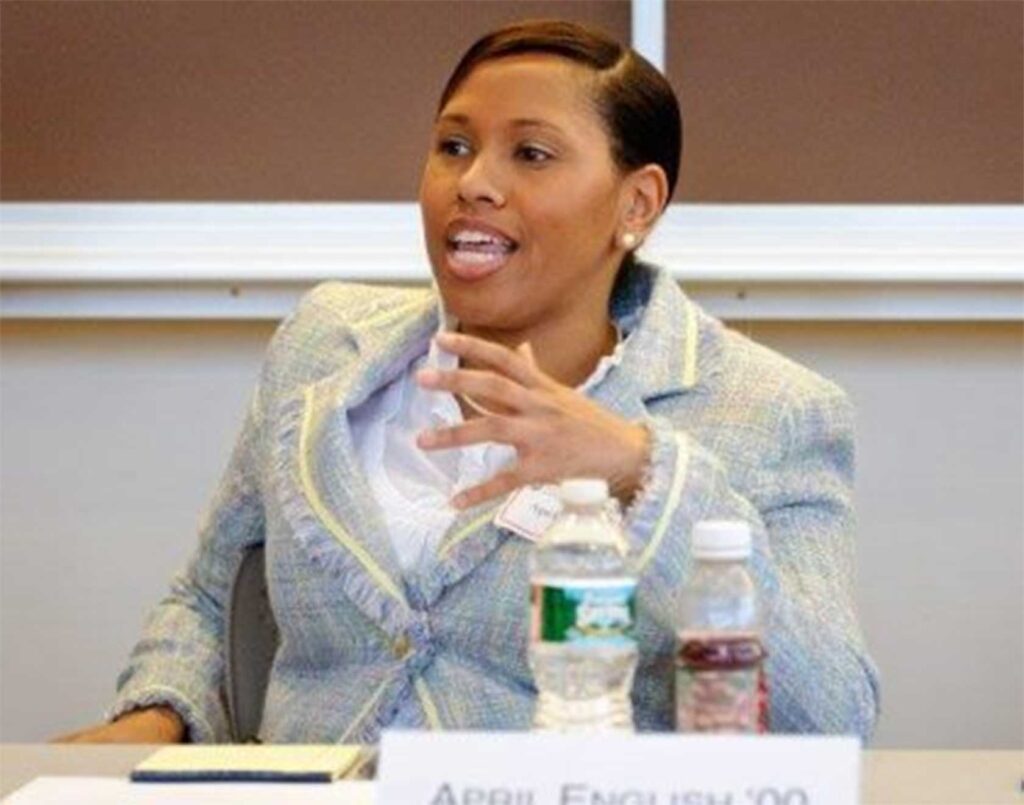Advisory Council on Black Empowerment holds first listening session in Grove Hall

Residents in Dorchester and Roxbury had some tough questions last week for an advisory committee that Gov. Maura Healey created to explore critical issues in the Black community.
They wanted to know what the state will do to address prison reform, make housing more affordable and end gun violence plaguing their neighborhoods.
“I care deeply about Black men … that have been taken advantage of on so many different levels,” said James Mackey, a community activist and wellness group organizer. “I see so many brothers my age dying out of nowhere.”
Since its establishment in February, the Governor’s Advisory Council on Black Empowerment has been gathering in private meetings.
But on Monday, Oct. 2, members of the 30-member council held the first public meeting of an eight-stop listening tour that it will host across the state.
The tour came to the heart of Grove Hall at the Thelma D. Burns Building, where council members heard from residents across the neighborhoods.
“We have to hope and pray that there are people here that will really take things to the next level,” said Leonard Lee, a Boston human rights commissioner, following the forum.
Healey had signed an executive order establishing the council and tasked it with advising the governor and Lt. Gov. Kim Driscoll on education, housing, workforce development and other critical issues related to economic prosperity and the well-being of the Black community across the state.
The council’s goal for the listening tour is to fully hear residents and their concerns, according to Tanisha Sullivan, co-chair of the advisory council.
Sullivan, who is also president of the Boston branch of the NAACP, also stressed that the administration aims to fulfill its mission to include equity in every aspect of its policymaking.
More than 100 people attended the meeting, and attendees were split between community residents and members of nonprofit organizations.
Prison reform was raised as a major issue. Speakers discussed Black residents being disproportionately incarcerated, unethical treatment within prisons and the idea that the city should not build new prisons.
“You are sitting right now in the most incarcerated corridor in the commonwealth of Massachusetts,” said Andrea James, a criminal justice reform organization leader. “So we’re here to represent that collective of our people. … Please, work with us.”
Residents also spoke about the intense need for affordable housing, the looming threat of gentrification and discrimination towards Black first-generation homeowners.
“While we’re getting hyper-gentrified, I feel like I have to stay a poor artist in order to have the facilities and the nurturing … to just live,” Cassandre Charles, founder of the Black Art Sanctuary, told the council.
Residents also stressed the need to end gun violence and urged more gun control, aid for families impacted by violence and policing in schools.
“In addition to gun control … we really [need] to put something in place for those families that are impacted,” said Clementina Chéry, founder of the Louis D. Brown Peace Institute, who spoke about her nonprofit and youth gun violence. “We are losing at both ends.”
Juwan Skeens, who lives in Roxbury, said there needs to be more police in schools.
“We’re often seeing that kids’ first interactions with the Boston police is when they get in trouble,” said Skeens. “To be more proactive in that approach, what we can do is have educational programming that can help us to all move forward together.”
Residents also addressed the need for better healthcare programs, the lack of cultural food offerings, and the persistence of food deserts, leading to concerningly young mortality rates.
“In this community, Black people are dying far beyond their numbers in the population,” said Louis Elisa, director of development at Seaport advisory council. “Post-Covid, they were talking about reform, but we’ve seen none.”
Many residents voiced support for the new prospects offered by the council. But a lack of past government action has raised difficult questions and conversation, including on education.
During the listening session one resident pointed to more that could be done to help the Orchard Park school.
“You could have a Mozart in Orchard Park,” said Paul White, a Roxbury resident. “And you wouldn’t even know it.”







